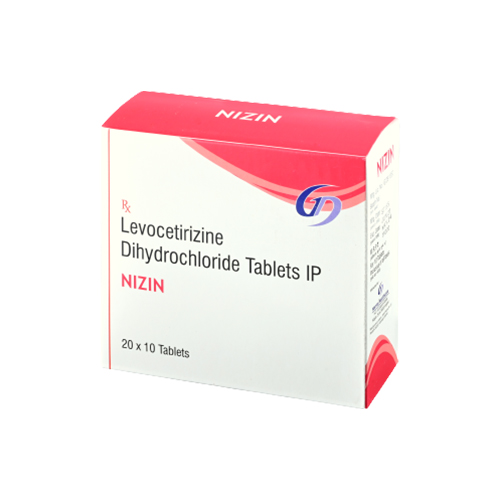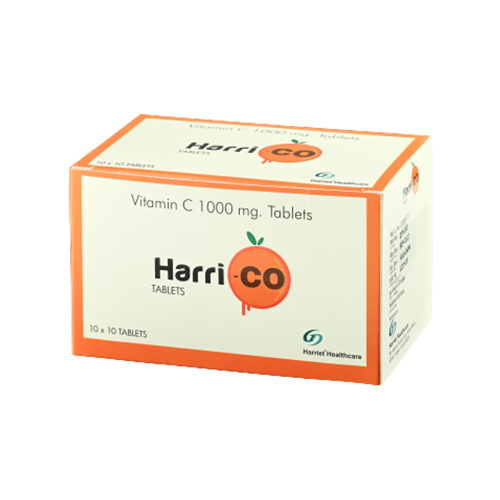Levocetirizine Dihydrochloride Tablets
NIZIN

Levocetirizine Dihydrochloride Tablets– NIZIN Tablets contain levocetirizine dihydrochloride, which is used to treat allergies. Levocetirizine dihydrochloride is an antihistamine. It works by blocking the effects of histamine, a chemical that is released by the body during an allergic reaction. Histamine can cause a number of symptoms, including itching, swelling, rashes, watery eyes, runny nose, sneezing, and hives.
Uses of Levocetirizine Dihydrochloride Tablets
Levocetirizine Dihydrochloride is an antihistamine medication that is commonly used to treat allergic conditions. Here are some of the common uses of Levocetirizine Dihydrochloride tablets:
- Levocetirizine is often prescribed to relieve symptoms associated with allergic rhinitis, commonly known as hay fever. These symptoms may include sneezing, runny or itchy nose, itchy or watery eyes, and itching of the throat or nose.
- Levocetirizine is also used to manage symptoms of chronic urticaria, a condition characterized by itchy, raised welts or hives on the skin that last for more than six weeks.
- It is effective in alleviating symptoms caused by seasonal allergens such as pollen, grass, and ragweed.
- Levocetirizine can help relieve itching associated with various skin conditions like eczema, dermatitis, or other allergic reactions.
- It may be used to relieve symptoms of allergic conjunctivitis, which includes red, itchy, and watery eyes.
Precaution to use of Levocetirizine Dihydrochloride Tablets
- Tell your doctor about any allergies you have, including allergies to levocetirizine, cetirizine, or hydroxyzine.
- Tell your doctor about any other medications you are taking, including prescription and over-the-counter medications, vitamins, and herbal supplements. Levocetirizine can interact with other medications, so it is important to talk to your doctor about all of the medications you are taking before starting levocetirizine.
- Tell your doctor if you have any kidney disease. People with kidney disease may need a lower dose of levocetirizine.
- Tell your doctor if you are pregnant or plan to become pregnant. Levocetirizine is generally considered safe to use during pregnancy, but it is important to talk to your doctor before taking it.
- Levocetirizine can pass into breast milk, so it is important to talk to your doctor before taking it if you are breastfeeding.
Direction to use of Levocetirizine Dihydrochloride Tablets
You can take Levocetirizine Dihydrochloride Tablet with or without food. How much you need depends on why you’re taking it. Usually, it’s taken in the evening but listen to your doctor’s advice. If you only have symptoms on some days, you might only need it then. Here are some general tips for taking levocetirizine dihydrochloride tablets:
- Take your tablet at the same time each day, so you are less likely to forget to take it.
- You can take levocetirizine with or without food.
- If you are taking the liquid form of levocetirizine, be sure to shake the bottle well before measuring your dose.
- Swallow the tablet whole with water. Do not chew or crush the tablet.
- If you miss a dose, take it as soon as you remember. However, if it is almost time for your next dose, skip the missed dose and continue with your regular dosing schedule. Do not take a double dose to make up for a missed dose.
Possible Side Effects of Levocetirizine Dihydrochloride Tablets
This medicine is very safe for most people. The most common side effects are mild and go away after a couple of days. These are:
- feeling sleepy or dizzy
- dry mouth
- feeling tired
- headache
| Pack Size | 20*10 |
|---|---|
| Packing Type | ALUALU |




